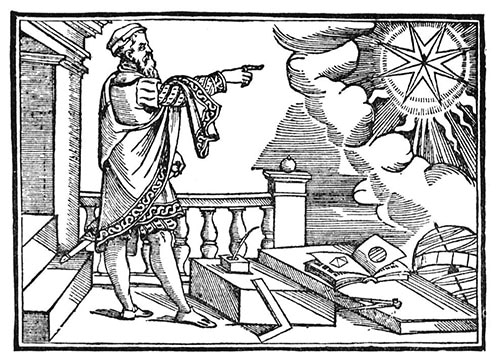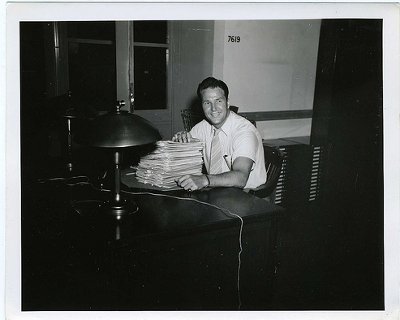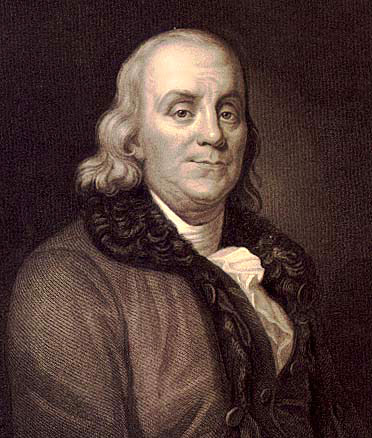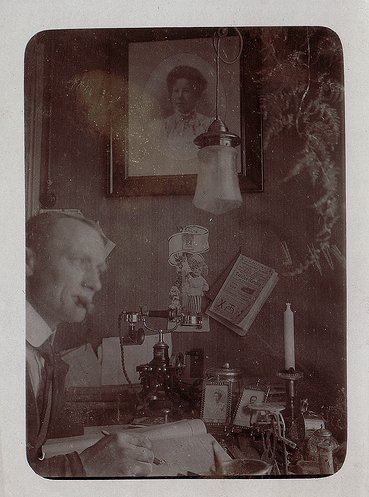
Editor’s Note: This is an excerpt from Robert Greene’s book Mastery. Last time he talked about the importance of the Apprenticeship Phase in gaining mastery over a skill or knowledge domain. Equally important is the need for an unbridled passion that will fuel you through the drudgery of your Apprenticeship. To gain that passion, the skill you seek to master must be part of what Greene calls your “Life’s Task.” In the excerpt below, Mr. Greene shares how you can discover yours.
Among his various possible beings each man always finds one which is his genuine and authentic being. The voice which calls him to that authentic being is what we call “vocation.” But the majority of men devote themselves to silencing that voice of the vocation and refusing to hear it. They manage to make a noise within themselves . . . to distract their own attention in order not to hear it; and they defraud themselves by substituting for their genuine selves a false course of life.
—José Ortega y Gasset
Many of the greatest Masters in history have confessed to experiencing some kind of force or voice or sense of destiny that has guided them forward. For Napoleon Bonaparte it was his “star” that he always felt in ascendance when he made the right move. For Socrates, it was his daemon, a voice that he heard, perhaps from the gods, which inevitably spoke to him in the negative—telling him what to avoid. For Goethe, he also called it a daemon—a kind of spirit that dwelled within him and compelled him to fulfill his destiny. In more modern times, Albert Einstein talked of a kind of inner voice that shaped the direction of his speculations. All of these are variations on what Leonardo da Vinci experienced with his own sense of fate.
Such feelings can be seen as purely mystical, beyond explanation, or as hallucinations and delusions. But there is another way to see them—as eminently real, practical, and explicable.
It can be explained in the following way: All of us are born unique. This uniqueness is marked genetically in our DNA. We are a one-time phenomenon in the universe—our exact genetic makeup has never occurred before nor will it ever be repeated. For all of us, this uniqueness first expresses itself in childhood through certain primal inclinations. For Leonardo it was exploring the natural world around his village and bringing it to life on paper in his own way. For others, it can be an early attraction to visual patterns—often an indication of a future interest in mathematics. Or it can be an attraction to particular physical movements or spatial arrangements. How can we explain such inclinations? They are forces within us that come from a deeper place than conscious words can express. They draw us to certain experiences and away from others. As these forces move us here or there, they influence the development of our minds in very particular ways.
This primal uniqueness naturally wants to assert and express itself, but some experience it more strongly than others. With Masters it is so strong that it feels like something that has its own external reality—a force, a voice, destiny. In moments when we engage in an activity that corresponds to our deepest inclinations, we might experience a touch of this: We feel as if the words we write or the physical movements we perform come so quickly and easily that they are coming from outside us. We are literally “inspired,” the Latin word meaning something from the outside breathing within us. Let us state it in the following way: At your birth a seed is planted. That seed is your uniqueness. It wants to grow, transform itself, and flower to its full potential. It has a natural, assertive energy to it. Your Life’s Task is to bring that seed to flower, to express your uniqueness through your work. You have a destiny to fulfill. The stronger you feel and maintain it—as a force, a voice, or in whatever form—the greater your chance for fulfilling his Life’s Task and achieving mastery.
What weakens this force, what makes you not feel it or even doubt its existence, is the degree to which you have succumbed to another force in life—social pressures to conform. This counterforce can be very powerful. You want to fit into a group. Unconsciously, you might feel that what makes you different is embarrassing or painful. Your parents often act as a counterforce as well. They may seek to direct you to a career path that is lucrative and comfortable. If these counterforces become strong enough, you can lose complete contact with your uniqueness, with who you really are. Your inclinations and desires become modeled on those of others.
This can set you off on a very dangerous path. You end up choosing a career that does not really suit you. Your desire and interest slowly wane and your work suffers for it. You come to see pleasure and fulfillment as something that comes from outside your work. Because you are increasingly less engaged in your career, you fail to pay attention to changes going on in the field—you fall behind the times and pay a price for this. At moments when you must make important decisions, you flounder or follow what others are doing because you have no sense of inner direction or radar to guide you. You have broken contact with your destiny as formed at birth.
At all cost you must avoid such a fate. The process of following your Life’s Task all the way to mastery can essentially begin at any point in life. The hidden force within you is always there and ready to be engaged. The process of realizing your Life’s Task comes in three stages:
First, you must connect or reconnect with your inclinations, that sense of uniqueness.
The first step then is always inward. You search the past for signs of that inner voice or force. You clear away the other voices that might confuse you—parents and peers. You look for an underlying pattern, a core to your character that you must understand as deeply as possible.
Second, with this connection established, you must look at the career path you are already on or are about to begin. The choice of this path—or redirection of it—is critical. To help in this stage you will need to enlarge your concept of work itself. Too often we make a separation in our lives—there is work and there is life outside work, where we find real pleasure and fulfillment. Work is often seen as a means for making money so we can enjoy that second life that we lead. Even if we derive some satisfaction from our careers we still tend to compartmentalize our lives in this way. This is a depressing attitude, because in the end we spend a substantial part of our waking life at work. If we experience this time as something to get through on the way to real pleasure, then our hours at work represent a tragic waste of the short time we have to live. Instead you want to see your work as something more inspiring, as part of your vocation. The word “vocation” comes from the Latin meaning to call or to be called. Its use in relation to work began in early Christianity—certain people were called to a life in the church; that was their vocation. They could recognize this literally by hearing a voice from God, who had chosen them for this profession. Over time, the word became secularized, referring to any work or study that a person felt was suited to his or her interests, particularly a manual craft. It is time, however, that we return to the original meaning of the word, for it comes much closer to the idea of a Life’s Task and mastery.
The voice in this case that is calling you is not necessarily coming from God, but from deep within. It emanates from your individuality. It tells you which activities suit your character. And at a certain point, it calls you to a particular form of work or career. Your work then is something connected deeply to who you are, not a separate compartment in your life. You develop then a sense of your vocation.
Finally, you must see your career or vocational path more as a journey with twists and turns rather than a straight line. You begin by choosing a field or position that roughly corresponds to your inclinations. This initial position offers you room to maneuver and important skills to learn. You don’t want to start with something too lofty, too ambitious—you need to make a living and establish some confidence. Once on this path you discover certain side routes that attract you, while other aspects of this field leave you cold. You adjust and perhaps move to a related field, continuing to learn more about yourself, but always expanding off your skill base. Like Leonardo da Vinci, you take what you do for others and make it your own.
Eventually, you will hit upon a particular field, niche, or opportunity that suits you perfectly. You will recognize it when you find it because it will spark that childlike sense of wonder and excitement; it will feel right. Once found, everything will fall into place. You will learn more quickly and more deeply. Your skill level will reach a point where you will be able to claim your independence from within the group you work for and move out on your own. In a world in which there is so much we cannot control, this will bring you the ultimate form of power. You will determine your circumstances. As your own Master, you will no longer be subject to the whims of tyrannical bosses or scheming peers.
This emphasis on your uniqueness and a Life’s Task might seem a poetic conceit without any bearing on practical realities, but in fact it is extremely relevant to the times that we live in. We are entering a world in which we can rely less and less upon the state, the corporation, or family or friends to help and protect us. It is a globalized, harshly competitive environment. We must learn to develop ourselves. At the same time, it is a world teeming with critical problems and opportunities, best solved and seized by entrepreneurs—individuals or small groups who think independently, adapt quickly, and possess unique perspectives. Your individualized, creative skills will be at a premium.
Think of it this way: What we lack most in the modern world is a sense of a larger purpose to our lives. In the past, it was organized religion that often supplied this. But most of us now live in a secularized world. We human animals are unique—we must build our own world. We do not simply react to events out of biological scripting. But without a sense of direction provided to us, we tend to flounder. We don’t how to fill up and structure our time. There seems to be no defining purpose to our lives. We are perhaps not conscious of this emptiness, but it infects us in all kinds of ways.
Feeling that we are called to accomplish something is the most positive way for us to supply this sense of purpose and direction. It is a religious-like quest for each of us. This quest should not be seen as selfish or antisocial. It is in fact connected to something much larger than our individual lives. Our evolution as a species has depended on the creation of a tremendous diversity of skills and ways of thinking. We thrive by the collective activity of people supplying their individual talents. Without such diversity, a culture dies.
Your uniqueness at birth is a marker of this necessary diversity. To the degree you cultivate and express it you are fulfilling a vital role. Our times might emphasize equality, which we then mistake for the need for everyone to be the same, but what we really mean by this is the equal chance for people to express their differences, to let a thousand flowers bloom. Your vocation is more than the work that you do. It is intimately connected to the deepest part of your being and is a manifestation of the intense diversity in nature and within human culture. In this sense, you must see your vocation as eminently poetic and inspiring.
Some 2,600 years ago the ancient Greek poet Pindar wrote, “Become who you are by learning who you are.” What he meant is the following: You are born with a particular makeup and tendencies that mark you as a piece of fate. It is who you are to the core. Some people never become who they are; they stop trusting in themselves; they conform to the tastes of others, and they end up wearing a mask that hides their true nature. If you allow yourself to learn who you really are by paying attention to that voice and force within you, then you can become what you were fated to become—an individual, a Master.
__________________
To read more, check out Mastery by Robert Greene. And be sure to tune into Saturday’s podcast interview with Mr. Greene.






